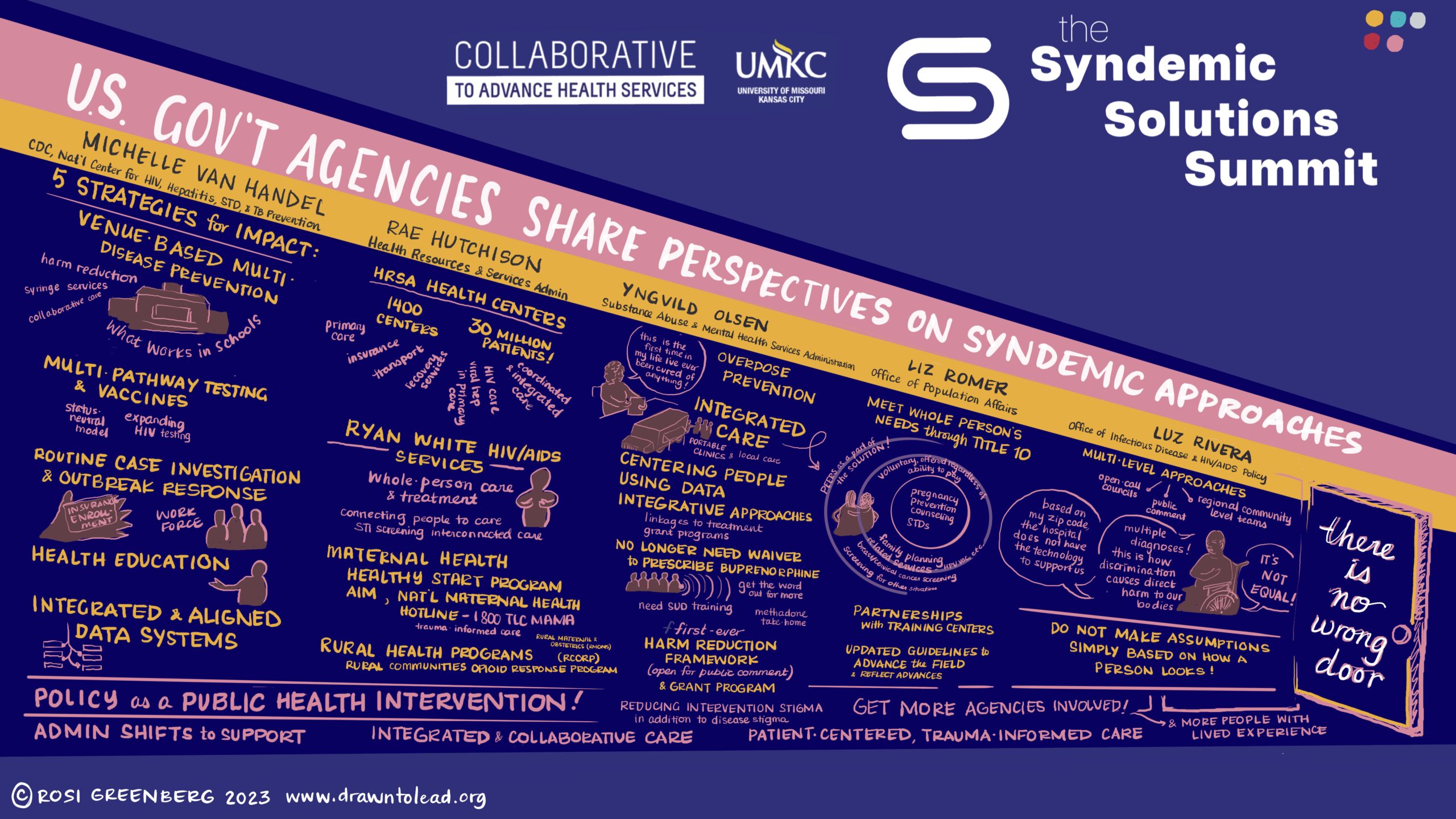By Greg Grisolano, for the ATTC Network

More than 200 public health professionals – representing a diverse coalition of policy makers at all levels of government, behavioral and medical health service providers, and researchers – gathered at the Kauffman Foundation in Kansas City, Missouri, for an inaugural summit dedicated to fostering a collaborative perspective to address the issues.
The ATTC Network’s National Coordinating Office was critical in facilitating the first-ever Syndemic Solutions Summit on July 26 and 27 in Kansas City, MO. The event featured an opening keynote address by Dr. Jonathan Mermin, leader of the Centers for Disease Control and Prevention’s National Center for HIV, Viral Hepatitis, STD, and TB Prevention.
A syndemic approach to public health means viewing the collective impact of two or more concurrent diseases that interact to worsen the burden of disease in a population. It also means recognizing there is no wrong door by which persons affected by two or more substance use disorder, HIV/AIDS, hepatitis, sexually transmitted infections, and maternal morbidity/mortality find their way into treatment and recovery.
“The ATTC Network believes strongly in the syndemic approach to treating the co-occurring epidemics of viral HIV/AIDS, hepatitis, and Substance Use Disorder, which is why we felt it was important for us to participate in the Syndemic Solutions Summit,” said Laurie Krom, co-director and principal investigator of the ATTC Network NCO. “The Summit was designed to leverage the collective knowledge and experience of experts across various disciplines, to break down silos, and share knowledge and experience across the spectrums. This is truly Technology Transfer in Action.”
One specific example of the ATTC Network’s syndemic approach was displayed during the Summit. The ATTC Network’s Guide to Integrating HCV Services into Opioid Treatment Programs was featured at one of the Ignite Talks on Wednesday.
“The intersection between SUD and HIV is important,” Krom said. “We have an awesome training program and other materials that we have been implementing in facilities since 2020.”
In addition to leaders from the CDC, members of the Office of Population Affairs, the Office of Infectious Disease, the Health Resources and Services Administration, and the Substance Abuse Mental Health Services Administration all participated in a panel discussion highlighting syndemic approaches on the federal level. Dr. Yngvild K. Olsen, director of the Center for Substance Abuse Treatment, spoke on behalf of SAMHSA. Her presentation touched on using integrated care and touting the agency’s first-ever Harm Reduction Framework.
Many ATTC Network directors who attended said that expanding the application and acceptance of harm reduction techniques and strategies was one key takeaway from the Syndemic Solutions Summit. Another theme that emerged from the conversations over the two-day event was the need to continue working with partners outside of the substance use treatment and recovery spectrum to help center SUD as a component in addressing the other epidemics.
“The Syndemic Solutions Summit was a tremendous first step in this process, but one takeaway from our Network staff who attended is that we have more work to do with our partners to promote the need for evidence-informed practices in SUD as part of treatment plan for these other public health issues,” said Maxine Henry, co-director of the ATTC NCO.
For Henry, one possible solution to that challenge also emerged during the Summit – the importance of highlighting the lived and living experience of team members and partners.
“The value of lived or living experience with substance use disorders cannot be overstated when it comes to creating person-centered treatment approaches,” she said. “I was deeply encouraged by the dialogue we heard during the Summit from individuals who shared their lived and living experiences with substance use and viral Hepatitis or those with a co-diagnosis of SUD and HIV/AIDS. We need those individuals to be involved in all our conversations.”
Those unable to attend the Syndemic Solutions Summit will soon have access to the event’s materials, presentations, and videos. Stay tuned for more information.